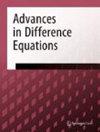线性波和非线性波散射理论的新范式:回顾与开放问题
IF 3.1
3区 数学
Q1 MATHEMATICS
引用次数: 0
摘要
我将对散射理论的最新进展进行回顾,该理论提供了一种统一的方法来研究具有一般相互作用项和数据的色散方程和双曲方程。这些方程包括随时间变化的势,以及 NLS、NLKG 和 NLW 方程。此外,我还讨论了一系列悬而未决的问题,以及它们在散射和反散射中的意义和未来潜在应用。本文章由计算机程序翻译,如有差异,请以英文原文为准。
A new paradigm for scattering theory of linear and nonlinear waves: review and open problems
I present a review of the recent advancements in scattering theory, which provides a unified approach to studying dispersive and hyperbolic equations with general interaction terms and data. These equations encompass time-dependent potentials, as well as NLS, NLKG, and NLW equations. Additionally, I discuss a series of open problems along with their significance and potential future applications in scattering and inverse scattering.
求助全文
通过发布文献求助,成功后即可免费获取论文全文。
去求助
来源期刊

Advances in Difference Equations
MATHEMATICS, APPLIED-MATHEMATICS
CiteScore
8.60
自引率
0.00%
发文量
0
审稿时长
4-8 weeks
期刊介绍:
The theory of difference equations, the methods used, and their wide applications have advanced beyond their adolescent stage to occupy a central position in applicable analysis. In fact, in the last 15 years, the proliferation of the subject has been witnessed by hundreds of research articles, several monographs, many international conferences, and numerous special sessions.
The theory of differential and difference equations forms two extreme representations of real world problems. For example, a simple population model when represented as a differential equation shows the good behavior of solutions whereas the corresponding discrete analogue shows the chaotic behavior. The actual behavior of the population is somewhere in between.
The aim of Advances in Difference Equations is to report mainly the new developments in the field of difference equations, and their applications in all fields. We will also consider research articles emphasizing the qualitative behavior of solutions of ordinary, partial, delay, fractional, abstract, stochastic, fuzzy, and set-valued differential equations.
Advances in Difference Equations will accept high-quality articles containing original research results and survey articles of exceptional merit.
 求助内容:
求助内容: 应助结果提醒方式:
应助结果提醒方式:


